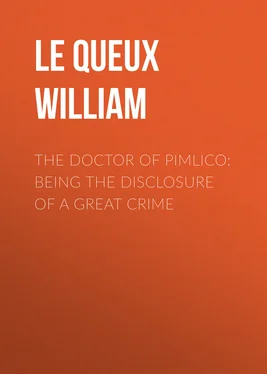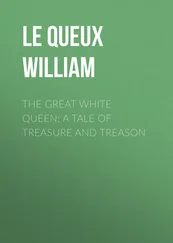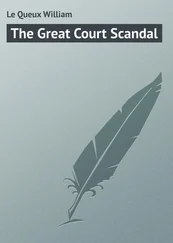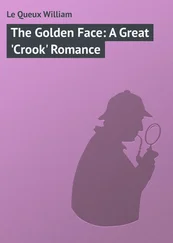William Le Queux - The Doctor of Pimlico - Being the Disclosure of a Great Crime
Здесь есть возможность читать онлайн «William Le Queux - The Doctor of Pimlico - Being the Disclosure of a Great Crime» — ознакомительный отрывок электронной книги совершенно бесплатно, а после прочтения отрывка купить полную версию. В некоторых случаях можно слушать аудио, скачать через торрент в формате fb2 и присутствует краткое содержание. Жанр: foreign_prose, Классический детектив, foreign_detective, foreign_antique, на английском языке. Описание произведения, (предисловие) а так же отзывы посетителей доступны на портале библиотеки ЛибКат.
- Название:The Doctor of Pimlico: Being the Disclosure of a Great Crime
- Автор:
- Жанр:
- Год:неизвестен
- ISBN:нет данных
- Рейтинг книги:5 / 5. Голосов: 1
-
Избранное:Добавить в избранное
- Отзывы:
-
Ваша оценка:
- 100
- 1
- 2
- 3
- 4
- 5
The Doctor of Pimlico: Being the Disclosure of a Great Crime: краткое содержание, описание и аннотация
Предлагаем к чтению аннотацию, описание, краткое содержание или предисловие (зависит от того, что написал сам автор книги «The Doctor of Pimlico: Being the Disclosure of a Great Crime»). Если вы не нашли необходимую информацию о книге — напишите в комментариях, мы постараемся отыскать её.
The Doctor of Pimlico: Being the Disclosure of a Great Crime — читать онлайн ознакомительный отрывок
Ниже представлен текст книги, разбитый по страницам. Система сохранения места последней прочитанной страницы, позволяет с удобством читать онлайн бесплатно книгу «The Doctor of Pimlico: Being the Disclosure of a Great Crime», без необходимости каждый раз заново искать на чём Вы остановились. Поставьте закладку, и сможете в любой момент перейти на страницу, на которой закончили чтение.
Интервал:
Закладка:
William Le Queux
The Doctor of Pimlico: Being the Disclosure of a Great Crime
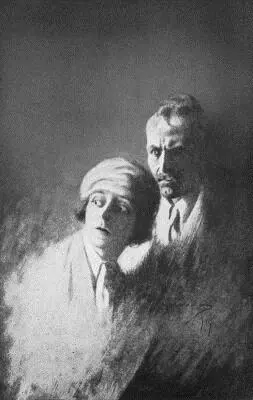
"Enid Drew Back In Terror"
CHAPTER I
IN WHICH CERTAIN SUSPICIONS ARE EXCITED
A grey, sunless morning on the Firth of Tay.
Across a wide, sandy waste stretching away to the misty sea at Budden, four men were walking. Two wore uniform—one an alert, grey-haired general, sharp and brusque in manner, with many war ribbons across his tunic; the other a tall, thin-faced staff captain, who wore the tartan of the Gordon Highlanders. With them were two civilians, both in rough shooting-jackets and breeches, one about forty-five, the other a few years his junior.
"Can you see them, Fellowes?" asked the general of the long-legged captain, scanning the distant horizon with those sharp grey eyes which had carried him safely through many campaigns.
"No, sir," replied the captain, who was carrying the other's mackintosh. "I fancy they must be farther over to the left, behind those low mounds yonder."
"Haven't brought their battery into position yet, I suppose," snapped the old officer, as he swung along with the two civilians beside him.
Fred Tredennick, the taller of the two civilians, walked with a gait decidedly military, for, indeed, he was a retired major, and as the general had made a tour of inspection of the camp prior to walking towards where the mountain battery was manœuvring, he had been chatting with him upon technical matters.
"I thought you'd like to see this mountain battery, Fetherston," exclaimed the general, addressing the other civilian. "We have lots of them on the Indian frontier, of course, and there were many of ours in Italy and Serbia."
"I'm delighted to come with you on this tour of inspection, General. As you know, I'm keenly interested in military affairs—and especially in the reorganisation of the Army after the war," replied Walter Fetherston, a dark, well-set-up man of forty, with a round, merry face and a pair of eyes which, behind their gold pince-nez, showed a good-humoured twinkle.
Of the four men, General Sir Hugh Elcombe and Walter Fetherston were, perhaps, equally distinguished. The former, as all the world knows, had had a brilliant career in Afghanistan, in Egypt, Burmah, Tirah, the Transvaal, and in France, and now held an appointment as inspector of artillery.
The latter was a man of entirely different stamp. As he spoke he gesticulated slightly, and no second glance was needed to realise that he was a thorough-going cosmopolitan.
By many years of life on the Continent he had acquired a half-foreign appearance. Indeed, a keen observer would probably have noticed that his clothes had been cut by a foreign tailor, and that his boots, long, narrow and rather square-toed, bore the stamp of the Italian boot-maker. When he made any humorous remark he had the habit of slightly closing the left eye in order to emphasise it, while he usually walked with his left hand behind his back, and was hardly ever seen without a cigarette. Those cigarettes were one of his idiosyncrasies. They were delicious, of a brand unobtainable by the public, and made from tobacco grown in one of the Balkan States. With them he had, both before the war and after, been constantly supplied by a certain European sovereign whose personal friend he was. They bore the royal crown and cipher, but even to his most intimate acquaintance Walter Fetherston had never betrayed the reason why he was the recipient of so many favours from the monarch in question.
Easy-going to a degree, full of open-hearted bonhomie , possessing an unruffled temper, and apparently without a single care in all the world, he seldom, if ever, spoke of himself. He never mentioned either his own doings or his friends'. He was essentially a mysterious man—a man of moods and of strong prejudices.
More than one person who had met him casually had hinted that his substantial income was derived from sources that would not bear investigation—that he was mixed up with certain financial adventurers. Others declared that he was possessed of a considerable fortune that had been left him by an uncle who had been a dealer in precious stones in Hatton Garden. The truth was, however, that Walter Fetherston was a writer of popular novels, and from their sale alone he derived a handsome income.
The mystery stories of Walter Fetherston were world-famous. Wherever the English language was spoken this shrewd-eyed, smiling man's books were read, while translations of them appeared as feuilletons in various languages in the principal Continental journals. One could scarcely take up an English newspaper without seeing mention of his name, for he was one of the most popular authors of the day.
It is a generally accepted axiom that a public man cannot afford to be modest in these go-ahead days of "boom." Yet Fetherston was one of the most retiring of men. English society had tried in vain to allure him—he courted no personal popularity. Beyond his quiet-spoken literary agent, who arranged his affairs and took financial responsibility from his shoulders, his publishers, and perhaps half a dozen intimate friends, he was scarcely recognised in his true character. Indeed, his whereabouts were seldom known save to his agent and his only brother, so elusive was he and so careful to establish a second self.
He had never married. It was whispered that he had once had a serious affair of the heart abroad. But that was a matter of long ago.
Shoals of invitations arrived at his London clubs each season, but they usually reached him in some out-of-the-world corner of Europe, and he would read them with a smile and cast them to the winds.
He took the keenest delight in evading the world that pressed him. His curious hatred of his own popularity was to everyone a mystery. His intimate friends, of whom Fred Tredennick was one, had whispered that, in order to efface his identity, he was known in certain circles abroad by the name of Maltwood. This was quite true. In London he was a member of White's and the Devonshire as Fetherston. There was a reason why on the Continent and elsewhere he should pass as Mr. Maltwood, but his friends could never discover it, so carefully did he conceal it.
Walter Fetherston was a writer of breathless mystery—but he was the essence of mystery himself. Once the reader took up a book of his he never laid it down until he had read the final chapter. You, my reader, have more than once found yourself beneath his strange spell. And what was the secret of his success? He had been asked by numberless interviewers, and to them all he had made the same stereotyped reply: "I live the mysteries I write."
He seemed annoyed by his own success. Other writers suffered from that complaint known as "swelled head," but Walter Fetherston never. He lived mostly abroad in order to avoid the penalty which all the famous must pay, travelling constantly and known mostly by his assumed name of Maltwood.
And behind all this some mystery lay. He was essentially a man of secrets.
Some people declared that he had married ten years ago, and gave a circumstantial account of how he had wedded the daughter of a noble Spanish house, but that a month later she had been accidentally drowned in the Bay of Fontarabia, and that the tragedy had ever preyed upon his mind. But upon his feminine entanglements he was ever silent. He was a merry fellow, full of bright humour, and excellent company. But to the world he wore a mask that was impenetrable.
At that moment he was shooting with his old friend Tredennick, who lived close to St. Fillans, on the picturesque Loch Earn, when the general, hearing of his presence in the neighbourhood, had sent him an invitation to accompany him on his inspection.
Читать дальшеИнтервал:
Закладка:
Похожие книги на «The Doctor of Pimlico: Being the Disclosure of a Great Crime»
Представляем Вашему вниманию похожие книги на «The Doctor of Pimlico: Being the Disclosure of a Great Crime» списком для выбора. Мы отобрали схожую по названию и смыслу литературу в надежде предоставить читателям больше вариантов отыскать новые, интересные, ещё непрочитанные произведения.
Обсуждение, отзывы о книге «The Doctor of Pimlico: Being the Disclosure of a Great Crime» и просто собственные мнения читателей. Оставьте ваши комментарии, напишите, что Вы думаете о произведении, его смысле или главных героях. Укажите что конкретно понравилось, а что нет, и почему Вы так считаете.
